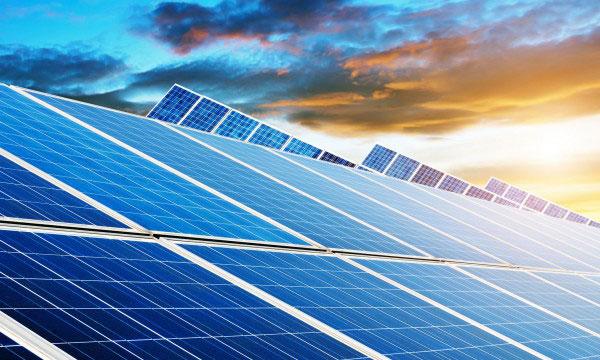You are here
IFC supports Jordan’s ‘largest renewable energy project’
By JT - Jan 16,2018 - Last updated at Jan 16,2018

The International Finance Corporation (IFC), a member of the World Bank Group, has arranged a financing package of up to $188 million for the largest solar photovoltaic (PV) power plant in Jordan to date, the corporation announced on Tuesday (Photo courtesy of Masdar website)
AMMAN — The International Finance Corporation (IFC), a member of the World Bank Group, has arranged a financing package of up to $188 million for the largest solar photovoltaic (PV) power plant in Jordan to date, the corporation announced on Tuesday.
The plant is the latest in a series of efforts to boost renewable energy investments in a country faced with increased energy demand, in part driven by the growing refugee crisis, according to an IFC statement published on its website.
The financing package for the 248-megawatt Baynouna facility developed by Masdar, Abu Dhabi Future Energy Company, includes $54 million from IFC’s own account and $134 million mobilised from other senior lenders including a parallel loan from Japan International Cooperation Agency (JICA). This is the first time JICA has invested in a private project finance transaction in the region, the statement said.
Other lenders include Dutch Development Bank FMO and Europe Arab Bank as B lenders and OFID, the OPEC Fund for International Development and German development Bank DEG as parallel lenders.
“The diversity of financial institutions supporting Baynouna illustrates both IFC’s successful track record with the private sector in emerging markets over the last 60 years and the strength of its commitment to best practice,” Mohamed Jameel Al Ramahi, CEO of Masdar, was quoted in the statement as saying.
“With backing now secured from lenders in Asia, Europe and the Middle East, the significant global interest in commercial renewable energy in Jordan and the MENA region is clear.”
The new plant will supply power well below Jordan’s average cost of electricity, thus further lowering the cost of long-term electricity generation in the country, the statement said.
“Renewable energy is a pillar of IFC’s work, in the region and beyond. We have already finance d several major projects, encouraging private investment in the sector and pioneering innovative financing models,” Mouayed Makhlouf, IFC director for the Middle East and North Africa, was quoted in the statement as saying.
“We stand ready to support Jordan in meeting its growing energy needs and becoming a model for renewable energy investments.”
So far, IFC has invested over $300 million in aggregate across 13 projects, enabling well over $1 billion in private sector investments in Jordan’s power distribution and generation sectors.
In 2013, IFC was the financial adviser and mandated lead arranger for Jordan’s first commercial-scale renewable energy project, the 117-megawatt Tafileh wind farm.
In 2014, IFC’s “ground-breaking” renewable energy finance programme, Seven Sisters, aggregated seven independent projects to raise $210 million to support Jordan’s first round of solar PV projects, at the time, the largest private sector-led solar programme in MENA, the statement read.
In 2016, IFC closed financing for FRV’s first 50-megawatt Mafraq I Solar PV project, followed at the end of the year by the ACWA-sponsored 485-megawatt Zarqa combined cycle gas-fired thermal power project.
Related Articles
AMMAN — Prime Minister Bisher Khasawneh on Saturday attended the launch of the Baynouna solar and photovoltaic energy station, located near
AMMAN — Masdar, Abu Dhabi’s renewable energy company, said on Wednesday it has selected International Finance Corporation (IFC), a member of
AMMAN — The International Finance Corporation (IFC), a member of the World Bank Group announced on Tuesday a financing package of up to $80












